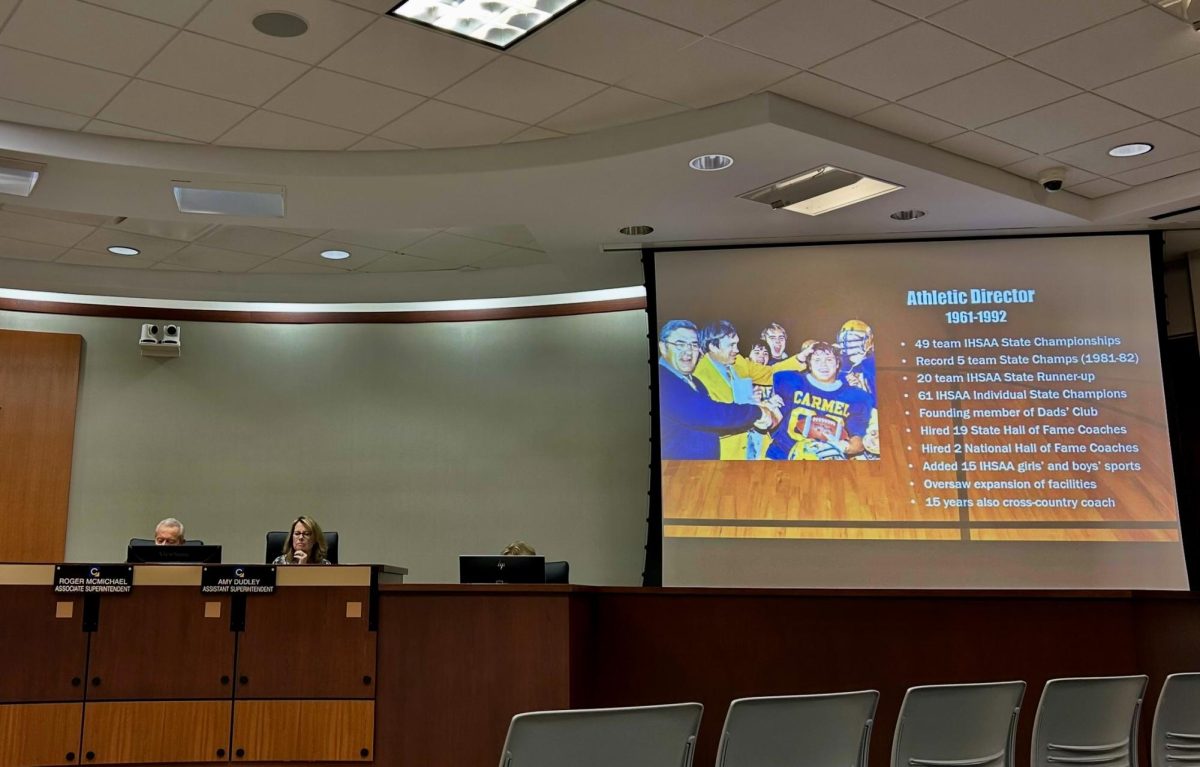Students discover the benefits of working for their parents’ businesses
By Rebecca Xu
<[email protected]>
Sophomore Michael Lu works at the Cold Stone Creamery ice cream shop in Clay Terrace every Saturday during the school year and about five days a week in the summer. Like most of the employees, Lu serves customers and washes dirty pans and utensils. It seems like a typical teenage job, with one exception: his employers are his own parents, the owners of the Clay Terrace Cold Stone.
Lu said, “I thought it would be a good idea to get some working experience before I found a job on my own.”
“My parents got me started and now I’m just like any other employee,” he said.
Lu is a member of a group of minors who work for their own parents, or have a job at all. According to the Economic Policy Institute (EPI), workers aged 16 through 24 were hit the hardest in the recent economic recession, reaching an unemployment high of 19.2 percent. The EPI also reported that small businesses saw a “double squeeze,” as 43,800 business filed for bankruptcy in 2008, over 15,000 more than the year before.
Wayne Rivers, president of the Family Business Institute (a consulting firm for family businesses), said that family businesses are particularly vulnerable in bad economic times.
“Family and small businesses are disproportionately hurt in a recession and this one can be laid at the feet of inept government policies because they have less resources to help weather economic storms,” Wayne said via e-mail. “About four million small and family businesses have closed since December 2007, a frightening number given there were only about 24 million (family businesses) at beginning of recession.”
In these economic conditions, hiring one’s own children is particularly attractive. According to the Internal Revenue Service, children employed by their parents are exempt from Social Security, Medicare and Federal Unemployment taxes, thus saving quite a bit of money. In the end, the rewards go back to the family instead of an outside person. Rivers said that hiring one’s own children improves family unity and relationships and saves orientation time as well.

Senior Olivia Lee works whenever she can at the eponymously named Café Olivia, her father’s restaurant in downtown Indianapolis. But unlike Lu, she is not on the official payroll. Nevertheless, her father’s restaurant still saves money and time by not needing to hire extra workers to do Lee’s tasks, as Rivers cited. Although she is not paid, Lee said she works at Café Olivia simply to help her parents.
“My siblings and I don’t really need a reason to work there. Granted, we may come for the free food but we just try to help out as much as possible. Before we moved to Indiana for the restaurant, my parents never looked as tired as they do now when they come back home so I guess it’s just an impulse to help them out,” Lee said.
Besides the free food, Lu said that working for his parents is especially beneficial in terms of job security.
“One nice thing is that I don’t have to worry about being fired. It’s not that I won’t work hard, just that making a mistake won’t cost a job,” he said.
However, these benefits sometimes receive the ire of fellow employees since they seem nepotistic. Wayne said this could create tension in the family business work place.
“Family (is) not always treated the same as non-family employees and morale suffers,” Wayne said.
Lee cites other causes for tension in the family business, in her family’s restaurant in particular. According to the Bureau of Labor Statistics, food service managers may work 12 to 15 hours per day and sometimes seven days a week. Lee’s father is not only the owner and manager in his restaurant, but also the executive chef.
“Some days, like Wednesdays and Fridays, we get so busy that even if all three of (my siblings and I) help out, we still end up exhausted at the end of the day,” Lee said. “It’s especially on those days when my dad gets irritable and snaps at us when we screw up.”
However, Lee said she has learned valuable lessons about business from working for her father.
“I specifically learned how to talk to and deal with customers. We are a service and everything we do is for the best interests of the customer. If a customer wants extra cheese, we give him extra cheese. We provide hospitality that ensures that the customer comes back,” Lee said.
In the future, Lee said she wishes to major in bioengineering and botany and work for Dow AgroSciences to help the society and environment. She said her dream was indirectly influenced by Café Olivia.
“My parents are so intent on serving the best quality food and vegetables that sometimes we may end up losing money instead of gaining,” Lee said. “So I guess my parent’s desire to serve the best quality food rubbed on to me. I would like to make healthier and fresher fruits and vegetables more available to the people.”
Lu said he plans to pursue a career in business. From working at Cold Stone, Lu said he has decided that in his future career he has no intention of working for anyone else.
Both Lee and Lu said they have learned a lot from working in their parents’ businesses, about business and about themselves.
“I would much rather own my own business and manage everything myself. In some ways, (my parents) have helped me see how I can achieve this though,” Lu said.
“Working for my parents has been an educational and fun experience.”




























![Keep the New Gloves: Fighter Safety Is Non-Negotiable [opinion]](https://hilite.org/wp-content/uploads/2024/12/ufcglovescolumncover-1200x471.png)






!["Wicked" poster controversy sparks a debate about the importance of accuracy versus artistic freedom [opinion]](https://hilite.org/wp-content/uploads/2024/11/riva-perspective-cover-1200x471.jpg)









































![Review: “We Live in Time” leaves you wanting more [MUSE]](https://hilite.org/wp-content/uploads/2024/12/IMG_6358.jpg)
![Review: The premise of "Culinary Class Wars" is refreshingly unique and deserving of more attention [MUSE]](https://hilite.org/wp-content/uploads/2024/12/MUSE-class-wars-cover-2.png)
![Introducing: "The Muses Who Stole Christmas," a collection of reviews for you to follow through winter [MUSE]](https://hilite.org/wp-content/uploads/2024/12/winter-muse-4.gif)
![Review: "Meet Me Next Christmas" is a cheesy and predictable watch, but it was worth every minute [MUSE]](https://hilite.org/wp-content/uploads/2024/11/AAAAQVfRG2gwEuLhXTGm3856HuX2MTNs31Ok7fGgIVCoZbyeugVs1F4DZs-DgP0XadTDrnXHlbQo4DerjRXand9H1JKPM06cENmLl2RsINud2DMqIHzpXFS2n4zOkL3dr5m5i0nIVb3Cu3ataT_W2zGeDAJNd_E-1200x884.jpg)
![Review: "Gilmore Girls", the perfect fall show [MUSE]](https://hilite.org/wp-content/uploads/2024/11/gilmore-girls.png)
![Review in Print: Maripaz Villar brings a delightfully unique style to the world of WEBTOON [MUSE]](https://hilite.org/wp-content/uploads/2023/12/maripazcover-1200x960.jpg)
![Review: “The Sword of Kaigen” is a masterpiece [MUSE]](https://hilite.org/wp-content/uploads/2023/11/Screenshot-2023-11-26-201051.png)
![Review: Gateron Oil Kings, great linear switches, okay price [MUSE]](https://hilite.org/wp-content/uploads/2023/11/Screenshot-2023-11-26-200553.png)
![Review: “A Haunting in Venice” is a significant improvement from other Agatha Christie adaptations [MUSE]](https://hilite.org/wp-content/uploads/2023/11/e7ee2938a6d422669771bce6d8088521.jpg)
![Review: A Thanksgiving story from elementary school, still just as interesting [MUSE]](https://hilite.org/wp-content/uploads/2023/11/Screenshot-2023-11-26-195514-987x1200.png)
![Review: "When I Fly Towards You", cute, uplifting youth drama [MUSE]](https://hilite.org/wp-content/uploads/2023/09/When-I-Fly-Towards-You-Chinese-drama.png)
![Postcards from Muse: Hawaii Travel Diary [MUSE]](https://hilite.org/wp-content/uploads/2023/09/My-project-1-1200x1200.jpg)
![Review: "Ladybug & Cat Noir: The Movie," departure from original show [MUSE]](https://hilite.org/wp-content/uploads/2023/09/Ladybug__Cat_Noir_-_The_Movie_poster.jpg)
![Review in Print: "Hidden Love" is the cute, uplifting drama everyone needs [MUSE]](https://hilite.org/wp-content/uploads/2023/09/hiddenlovecover-e1693597208225-1030x1200.png)
![Review in Print: "Heartstopper" is the heartwarming queer romance we all need [MUSE]](https://hilite.org/wp-content/uploads/2023/08/museheartstoppercover-1200x654.png)



